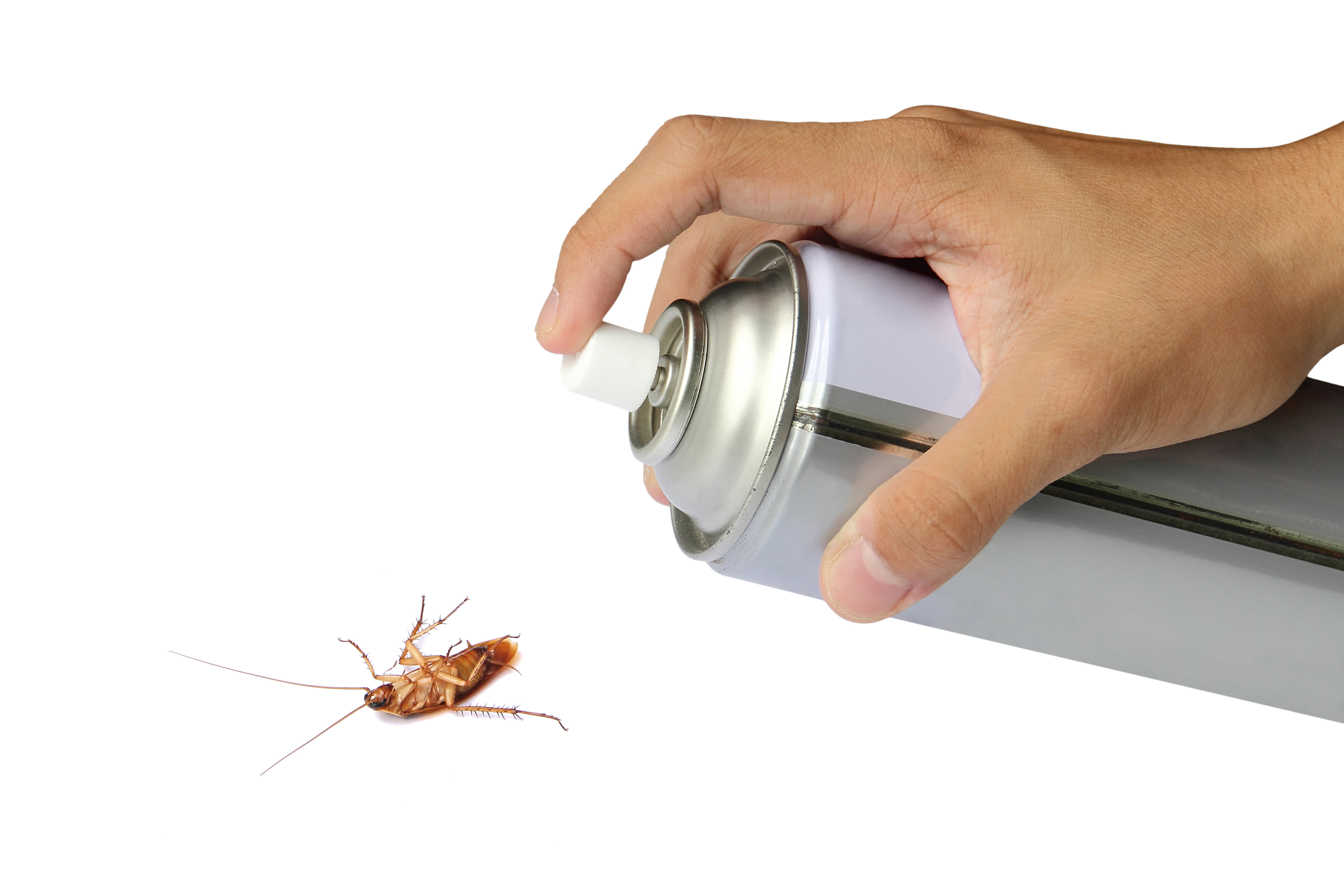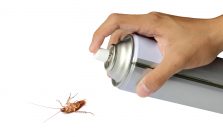 Whether you live in the city or the country, it’s likely you have to deal with pest control issues of some kind. Most consumers are familiar with the major brands of sprays, traps, and repellents so they walk into the pest control aisle of the hardware store with a fair amount of confidence. Your familiarity might make you feel as if you can do your own pest control.
Whether you live in the city or the country, it’s likely you have to deal with pest control issues of some kind. Most consumers are familiar with the major brands of sprays, traps, and repellents so they walk into the pest control aisle of the hardware store with a fair amount of confidence. Your familiarity might make you feel as if you can do your own pest control.
For most minor issues, this is true. Getting rid of fruit flies, a mouse, or a couple of spiders is a breeze for a knowledgeable homeowner.
But do you know when the issue is out of control? How many rodents are too many?
It depends on where you live, the time of year, and the type of pest. Here is a comprehensive guide of steps to take to do your own pest control. If these aren’t enough, it might be time to call in the pros.
Seal Up The Cracks
Leaving small cracks and holes serve as a wide-open invitation for critters and insects to make a home in your house. If air can pass through, so can a tiny egg or a freshly hatched creature.
Take the time to inspect the exterior of your house from every edge of the foundation to the top of the roof. Seal up cracks, spaces in the siding or tears in the roof with silicone caulk or another all-weather patching compound.
The little holes and spaces in the window frames that let in your cable lines might also be a gateway for invaders.
Problems can be compounded if holes in your roof or upper levels of a home or garage are accessible to bats, possums or rodents. Once inside, they’ll be more than happy to feast on the insects that likely found their way into your space.
Cover your attic vents with insect screens and hardware cloth. Together, they’re a useful deterrent against unwanted visitors.
Clean Up The Clutter
Unfortunately, insects can fest on things we not only value but would never guess they could live on. Bookbinding glue, biodegradable papers, silk, and linen are all a treat to bugs and can set the stage for an infestation.
If you know there’s a room or an area in your basement filled with stuff you don’t need anymore, it might be time to take care of that. If you want to do your own pest control, you might also do yourself a favor and donate these things to a thrift store.
Otherwise, you’re leaving out a potential food source for uninvited cockroaches, beetles, and silverfish.
Anything that you know you need to keep should be sealed in waterproof plastic tubs. Buy a higher quality material, as cheaper tubs are susceptible to cracking and damage.
Your tubs should act as a Fort Knox to your valuable goods and family treasures. The last thing you want to see when you gleefully dig out your family photos next holiday season is a family of bugs snacking on your baby pictures.
No Free Lunches
Even keeping a clean counter isn’t enough to keep pests from your home. Your first step when you want to do your own pest control might be to clean your house from top to bottom, putting everything securely in cabinets.
But all of your baking supplies, rice, cereal and dog food are sitting there waiting to be eaten. Unpacking your dry foods and putting them in airtight canisters or plastic containers is the way to go.
If you buy in bulk, this can both prolong the shelf life but also keep any stray bugs that may have come along for the ride from getting out and into your kitchen.
It’s necessary to keep trash secure to stay free of insects. A can with a locking lid will keep bugs from being attracted by the scent. Keep compost in the freezer to limit the possibility both of smell and of infestation.
And while you’re going through your trash, clean out your garbage disposal. Food items clogged inside can be heaven for a bug looking for lunch.
If you’re not a fan of toxic chemicals, you can clean most of your home with household products.
Water is a Bug’s Best Friend
Water is the breeding ground for all sorts of flying insects and roaches. They are often known for hanging around bathroom plumbing. Be sure that you clean up all surfaces on a regular basis.
You need to be diligent when you do your own pest control. Flushing through your pipes will also ensure that nothing of interest to insects might be found stuck in your pipes or drains.
Dripping faucets can be to blame for standing water and give a nice home for bugs to start unpacking their bags.
Keeping your bathroom fan running after a shower will clear the air of humidity and make the environment less welcoming to insects.
If you’ve got temporary repairs keeping your pipes together, get them fixed ASAP. A pipe that’s burst or cracked once won’t heal over time. It will only get worse, creating a flood of dirty water and potential places for insects to breed.
If you’ve completed these tasks and still face a pest issue, consider the following questions.
How Big is the Problem?
The tactics mentioned above may not be able to treat your pest control problem at the scale that it’s reached. By now, your issue may be more than one rogue mouse running through your cabinets.
Rodents might have taken the food source from your cabinets and moved it to their new nest, inaccessible to you or your housecat.
If insects have taken up a home in cracks or crevices, they could be breeding while you sleep. You might only see one or two when they’re out looking for food sources.
By the time you see them, it might be too late to do your own pest control.
How Much Time Do You Have?
Can this issue wait a week or two while commercial products run their course and help treat your pest issue or do you need them out of your life today?
Some prevention and treatment methods might work right away. If you find yourself trying the same things over and over, you may be wasting time and money. The longer that a problem persists, the worse it can get.
If after you do your own pest control, you end up having to treat the problem several times, it might be time to call a professional.
Is Safety an Issue?
Some pests are more serious than others. While ants and mice may cause messes, seem kinda gross, and end up annoying you, they’re not necessarily dangerous.
If you encounter issues with raccoons, rats, or some types of spiders, you might not want to handle it alone.
Pests can transmit diseases to kids and pets very easily. More dangerous pests might mean that you need to take more serious measures to protect your home.
These kinds of pests require more dangerous pesticides and traps. If you have kids and pets who you want to keep protected, you might not be able to do your own pest control.
Hire a professional who is experienced with the application and, more importantly, the cleanup after using traps or chemicals.
Take the time to research before you hire anyone by reading exterminator reviews near Hickory NC.
What Do You Do Once the Pests Are Gone?
Let’s say you do your own pest control and end up succeeding. What will you do next?
You should take the process of cleanup very seriously. Leaving dead pests around may only serve to attract more pests.
If you leave toxic chemicals in and around your house, you could be endangering your own family and pets not to mention the kids and pets in your neighborhood.
Following the cleanup, you need to think about prevention.
Once your home is free of pests, you need to make sure that it’s also pest repellent.
If pests are a seasonal issue where you live, as soon as you see the first pests in window cracks or kitchen counters, take action. Spray around all the cracks and pipes in your home.
You may suspect that there is an infestation that you can’t see. In this case, call a professional immediately. They will have a checklist of warning signs to look for when fighting an infestation.
Be Smart If You Do Your Own Pest Control
Before you do your own pest control, do your research, and take safety precautions, and heed warnings written on all commercial products. Wear safety gloves, have goggles on hand, and clear the area of kids and pets.
If it’s in your budget, your best option is to research exterminators in your area and read reviews. If sustainability is an issue for you, ask details of your exterminator. There are lots of “green options” for pest control.
If you’re an animal lover, ask about humane traps.
Most exterminators will walk you through the process before you write a check. Only work with one who you feel comfortable with and who you feel has your interests in mind.
But most of all, act now before the problem gets any worse!
